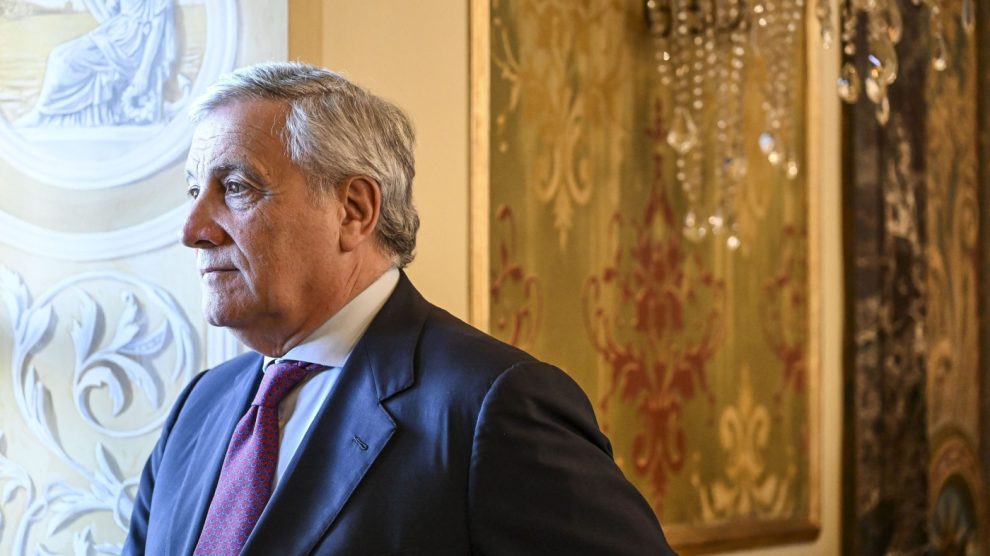Antonio Tajani is going to Beijing. The Italian Foreign Minister (and Deputy Prime Minister) has confirmed he will travel to China on September 4 for a series of high-level diplomatic contacts. The trip comes at an extraordinarily delicate moment, as the Ukraine dossier remains wide open, and Rome is clearly leaning towards exiting the Belt and Road Initiative.
- FM Tajani is most likely tasked with preparing the ground for this exit, as well as PM Giorgia Meloni’s own visit in the autumn.
A brief recap. The 2019 Memorandum of Understanding that brought Italy into the BRI is set to self-renew in early 2024 unless one party withdraws no later than December 2023. That’s no longer a matter of if, but when: as PM Meloni reportedly signalled to United States congresspeople, Rome has already decided to leave.
- Now, the key matter is handling the affair so as to cushion China’s possible economic retaliation. The government has been working to make the transition as painless as possible to avoid turning Beijing’s inevitable resentment into economic backlash, and it’s widely expected that Rome will offer some form of deal to counter the blow.
The expert speaks. Decode39 reached out to Enrico Fardella, Professor at the University of Naples “l’Orientale” and Director of ChinaMed.it (a research platform that looks at China’s role in the Mediterranean region), to get his reading on FM Tajani’s visit, what to expect from Beijing and how he sees the BRI dossier playing out.
Is China ready to hear what FM Tajani will have to say? The Chinese government has been “prepared” for Italy’s scepticism about renewing the BRI since the beginning of the Meloni government, argued Professor Fardella. “The PM had clarified her thoughts on this matter since day one. So did other key ministers. The war in Ukraine, China’s position on it, and the growing tension between Beijing and Washington have consolidated this trend.”
- FM Tajani, too, has been “signalling the shifts for months” and repeatedly stressed – up until very recently – that he will encourage Chinese authorities to “correct” their position and put more pressure on Russian President Vladimir Putin to achieve a peaceful solution of the conflict.
- “I therefore believe that the trip will try to emphasise the Italian position, but it also offers some incentives to counterbalance the effect of this decision.”
What will this mean for Beijing? “Aesthetics matter, especially for China,” noted the expert. “If Italy does not renew the BRI, it will inevitably send a message of non-confidence towards China’s global initiatives, signalling a reversion of the upward trend of the pre-Covid years (2015-2019) when the BRI seemed unstoppable.”
- China’s declining economic prospects “may certainly spread a more acute and realistic perception of the BRI especially in the Global South whose idealistic expectations of the BRI at times went even beyond the most colourful promises of Chinese propaganda.
How to go about it? However, he continued, Italy has no interest in harming its relations with Beijing. So “it will not slam the door” and will “do everything to negotiate a smooth way out that does not translate into a loss of face for Beijing and may actually open a more stable and manageable stage of the bilateral relations,” explained Professor Fardella.
- “Those in Beijing who call for retaliation do not serve the country’s interest but their own: they simply try to improve their visibility within the system.”
- “An objective assessment of the situation would see Beijing managing Italy’s decision jointly and smoothly with Rome in order to lower the impact of this passage and maximise the outcome of a new agreement.”
- In view of the Taiwan issue and the 2024 elections in the United States, he added, “such a move may, in fact, still bring about interesting margins of manoeuvre and incentives for both sides.”
Will economic deals be enough to appease Beijing? “I do not think so. The BRI initiative, especially since the Chinese Communist Party’s XIX Congress in 2017, has acquired a powerful political (and strategic) rationale for Beijing. Italy’s MoU – which was mostly driven by domestic politics, such as competition for the 2019 EU elections between the Five Star Movement and the League – was framed by Beijing as a recognition of this logic.”
- Therefore, “changing course would send a no-confidence signal to President Xi Jinping’s flagship initiative and China’s aspiration for a revision of global governance. A totally legitimate decision for a new Italian government, but with political implications that go beyond the economic sphere,” remarked the expert.
How might Italy navigate an exit without upsetting China? It will “try to emphasise the MoU’s lack of economic returns. But this still looks like a clear ‘expedient’ to justify the Italian decision, and it sheds a negative light on the BRI as well as its mastermind, Xi Jinping,” maintained Professor Fardella.
- “It might probably be more helpful to emphasise how democracies function and stress that the 2019 MoU was not a treaty but a mere choice, charged with political implications, made by another government. A choice that PM Meloni’s government is unwilling to inherit, especially given China’s position over Ukraine.”





